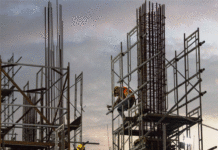New Delhi, March 06, 2020: Real estate in India has been experiencing dynamic transformation in recent times with series of regulatory policies being brought about by the government. Reforms like RERA, demonetisation and GST have changed the landscape of real estate in the country. Even as these changes were being ushered in, South India continued to maintain momentum in real estate and has been a quiet crusader, strengthening and building itself as one of the most sought-after destinations in the country. Consequently, cities like Bangalore, Chennai and Hyderabad are now part of the global real estate map. The new policies implemented by the government have created structural changes in the Indian economy, and influenced by this, southern cities have become the focal point for future real estate developments.
By limiting new launches, focussing on completing delayed projects and aiming for projects that match consumer demand, housing performance has been fairly good in South India. According to Magicbricks‘s Prop Index Report for Q4 2019 South Indian cities of Chennai, Bengaluru and Hyderabad has emerged as the best performing market for 2019.
This approach has been in direct contrast to markets like Delhi NCR and Mumbai, where the developers are facing the challenge of huge inventory pile up, contrary to the situation in South India.
As per a recent report, Bangalore and Hyderabad should be Asia’s fastest and third fastest-growing cities, respectively, over 2020-24. Bangalore should also achieve average annual real GDP growth of 9.9% over 2020-2024 – far above aggregate growth for India of 6.8%and average growth for Asian cities of 3.9% over the same period. Hence this situation should support demand for investment in property in South India. There are few key factors outlining why South India has become the preferred destination for real estate in the recent times.
Presence of robust infrastructure : Public transport and connectivity are good in the Southern cities and are been made robust further through multiple infrastructure projects. Metro connectivity will completely transform the way people travel, and being pollution-free, it will change the real estate dynamics positively. In Bangalore, the planned key developments are the completion of the metro with lines covering Whitefield, Bidadi, Bangalore International Airport and Bannerghatta region. A vast suburban rail system has also been planned around Bangalore apart from the construction of the Peripheral Ring Road. Similarly, a 3-deck elevated corridor is all set to give Chennai’s Old Mahabalipuram Road (OMR) a makeover as the government is planning a multi-deck elevated transport corridor under two phases to decongest the IT Expressway. The developments have compelled many residents to relocate from old residential zones to the new residential hotspots like OMR and ECR in Chennai.
Strong IT and Start-up growth: The astounding growth of the information technology industry, multinationals and public industries in Southern India is to be taken note of. The Southern India, especially cities like Bangalore, Chennai and Hyderabad have emerged as the main arm of the outsourcing business for the US, UK and Europe. With more foreign investors looking to establish their IT back offices in the prime locations of South India, the scope for corporate real estate is immensely high. Start-ups too have emerged very strongly in this region with Bangalore becoming the start-up capital of India. Bangalore, Chennai and Hyderabad are among top 10 cities for start-ups in the country, which now has over 20,000 registered start-ups.
Availability of land at reasonable pricing: The vast availability of land at reasonable prices in the Southern metros as compared to Mumbai and Delhi has led to higher demand for luxury housing. The presence of a high number of urban professionals both from within the cities and due to high migration from other cities seeking enhanced prospects has created a major demand for luxury housing in Southern India.
Housing demand across segments: South India also has a mixed housing development ranging from high-rises to luxury townships that offer access to world-class amenities in a location. The new developments have transformed the skyline of South India with reputed developers initiating landmark projects in metros like Bangalore and Chennai.
High retail growth: Metros in South India have also seen a sharp rise in retail and commercial growth. A slew of supermarkets, malls and leading retail chains has emerged to cater to the rising demand. Millennial have been the driving force behind this change as they seek a superior lifestyle. To cater to their pristine tastes, international and premium Indian brands among others have made their presence felt in the South.
Social infrastructure: South India has always been at the forefront of health and education. Some of the biggest brands in healthcare, and the numerous colleges and universities of repute have their presence in Bangalore, Chennai and Hyderabad. Millennial and their families have been attracted to these cities due to the availability of a wide choice.
Increased Demand from NRIs: Owing to the vast presence of physical and social infrastructure, the on-time completion of real estate projects and good track record of developers, NRIs are attracted to invest in South India. The overall NRI investment in the primary real estate market in India is estimated to grow to nearly $25 billion by 2022 and a good portion of this is expected to be invested in South India. Quick and high capital appreciation too makes the region an attractive destination for real estate investment. Also, the rupee hovers at levels that inspire NRIs to stick with their investment.
In conclusion, it can be said that South Indian cities like Bangalore, Chennai and Hyderabad are growing at a fast pace with specific micro-markets like Hebbal and Bannerghatta in Bangalore, OMR in Chennai and Shankarapally in Hyderabad performing very well. Real estate houses have immense opportunities in the South to turn people’s dreams into reality and investment into wealth. A conducive investment climate, the presence of a dynamic professional class, a well-developed corporate ecosystem, and the rapid rise of co-working spaces have all brought sheen to real estate in South India which will experience further boom in the coming years. The next few years look promising for the real estate industry in South India, especially for those firms who have the expertise to add value and capitalize on these opportunities.



















